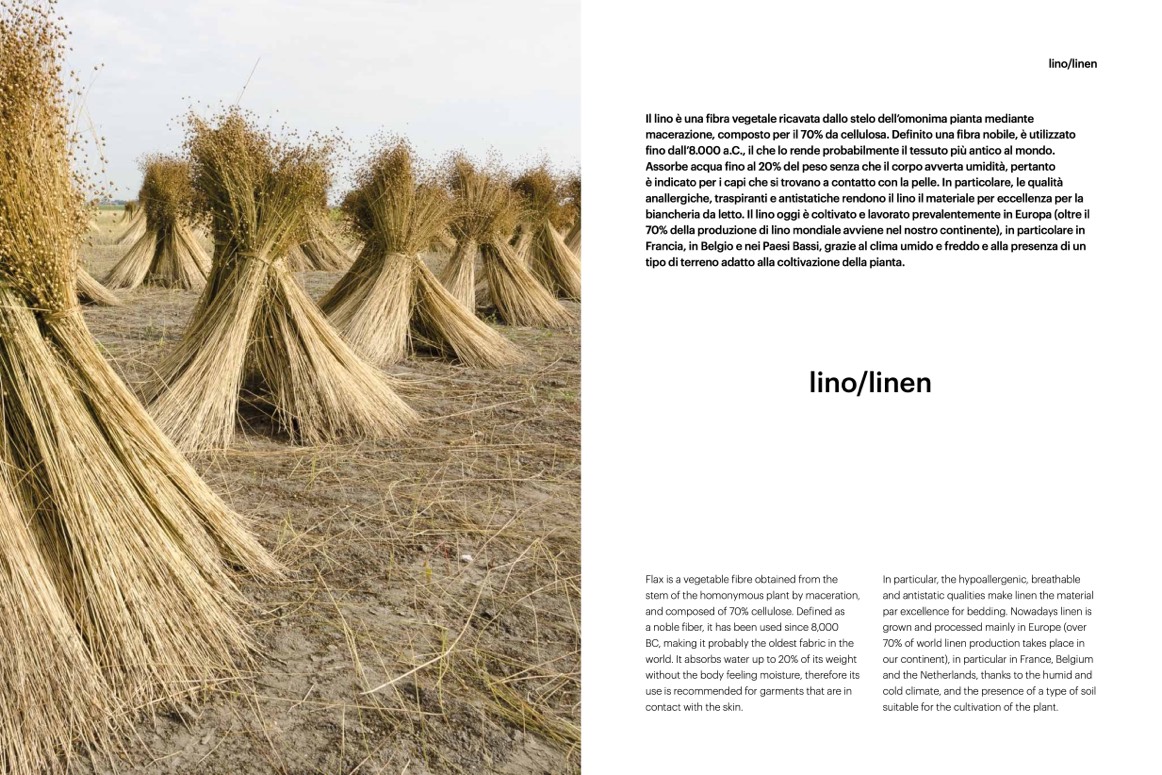
Il lino è una fibra vegetale ricavata dallo stelo dell’omonima pianta mediante
macerazione, composto per il 70% da cellulosa. Definito una fibra nobile, è utilizzato
fino dall’8.000 a.C., il che lo rende probabilmente il tessuto più antico al mondo.
Assorbe acqua fino al 20% del peso senza che il corpo avverta umidità, pertanto
è indicato per i capi che si trovano a contatto con la pelle. In particolare, le qualità
anallergiche, traspiranti e antistatiche rendono il lino il materiale per eccellenza per la
biancheria da letto. Il lino oggi è coltivato e lavorato prevalentemente in Europa (oltre il
70% della produzione di lino mondiale avviene nel nostro continente), in particolare in
Francia, in Belgio e nei Paesi Bassi, grazie al clima umido e freddo e alla presenza di un
tipo di terreno adatto alla coltivazione della pianta.
lino/linen
Flax is a vegetable fibre obtained from the
stem of the homonymous plant by maceration,
and composed of 70% cellulose. Defined as
a noble fiber, it has been used since 8,000
BC, making it probably the oldest fabric in the
world. It absorbs water up to 20% of its weight
without the body feeling moisture, therefore its
use is recommended for garments that are in
contact with the skin.
In particular, the hypoallergenic, breathable
and antistatic qualities make linen the material
par excellence for bedding. Nowadays linen is
grown and processed mainly in Europe (over
70% of world linen production takes place in
our continent), in particular in France, Belgium
and the Netherlands, thanks to the humid and
cold climate, and the presence of a type of soil
suitable for the cultivation of the plant.
lino/linen

